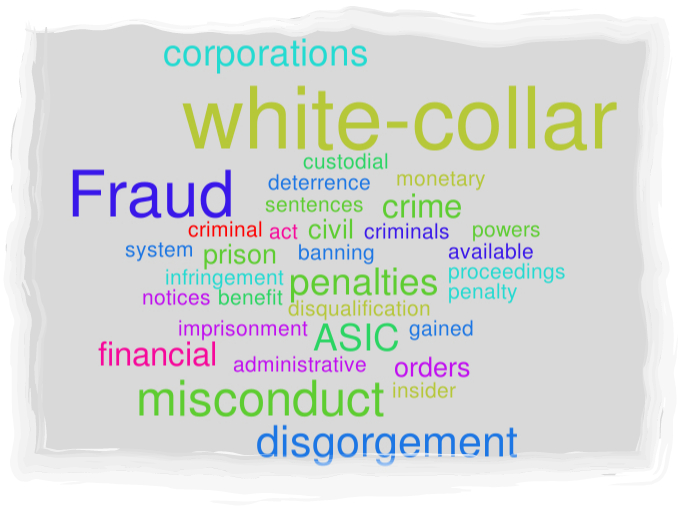
Inquiries by Parliamentary committees can be a waste of everyone’s time. The Senate’s Inquiry into criminal, civil and administrative penalties for white collar crimes is a good example.
It began in November 2015 and ended in March 2017 (after pausing for 5 months because of the election). It received 139 submissions, 2 lots of “additional information”, and had a public hearing at which 23 witnesses appeared. It’s report, which carries the grandiose title “Lifting the fear and suppressing the greed” (23 March 2017), runs to 108 pages. The committee said:
“A clear message to the committee from inquiry participants was that white-
collar crime and misconduct can cause serious harms, both at the individual level and
in the community as a whole.”
But despite this statement and the enormous amount of work that went into making submissions, conducting the inquiry and writing the report, media coverage has been almost non-existent. Perhaps news editors thought the subject matter was fairly dry, and/or that the report’s recommendations were not particularly noteworthy or inspiring or controversial. Such a conclusion would be understandable. To which I would add, that the report is unlikely to have much of an impact on how we deal with white collar crime.
| THE COMMITTEE’S RECOMMENDATIONS | ||
| Recommendation 1 | That the government consider reforms to provide greater clarity regarding the evidentiary standards and rules of procedure that apply in civil penalty proceedings involving white-collar offences. | paragraph 3.52 |
| Recommendation 2 | That the Australian Securities and Investments Commission (ASIC) consider ways in which the accessibility and usability of the banned and disqualified register might be enhanced, in order to create greater transparency regarding banning and disqualification orders. | paragraph 5.24 |
| Recommendation 3 | That the government consider making infringement notices available to the ASIC to respond to breaches of the financial services and managed investments provisions of the Corporations Act. | paragraph 5.34 |
| Recommendation 4 | That the government amend the Corporations Act 2001 to increase the current level of civil penalties, both for individuals and bodies corporate, and that in doing so it should have regard to non-criminal penalty settings for similar offences in other jurisdictions. | paragraph 6.55 |
| Recommendation 5 | That the government provide for civil penalties in respect of white-collar offences to be set as a multiple of the benefit gained or loss avoided. | paragraph 6.56 |
| Recommendation 6 | That the government introduce disgorgement powers for the ASIC in relation to non-criminal matters. | paragraph 6.57 |
The committee’s full report is available for viewing and download at the committee’s Parliament of Australia website.
Incidentally, insolvency practitioners will be disappointed that there are so few references in the report to insolvency and liquidation, although potentially recommendation 4 could have an impact in corporate insolvency.
The next part of this blog post contains extracts which reveal “The Committee’s Views” and the “Table of Contents of Report”.
 The following table sets out the proposed legislation by using extracts from the Bill and related official material.
The following table sets out the proposed legislation by using extracts from the Bill and related official material.